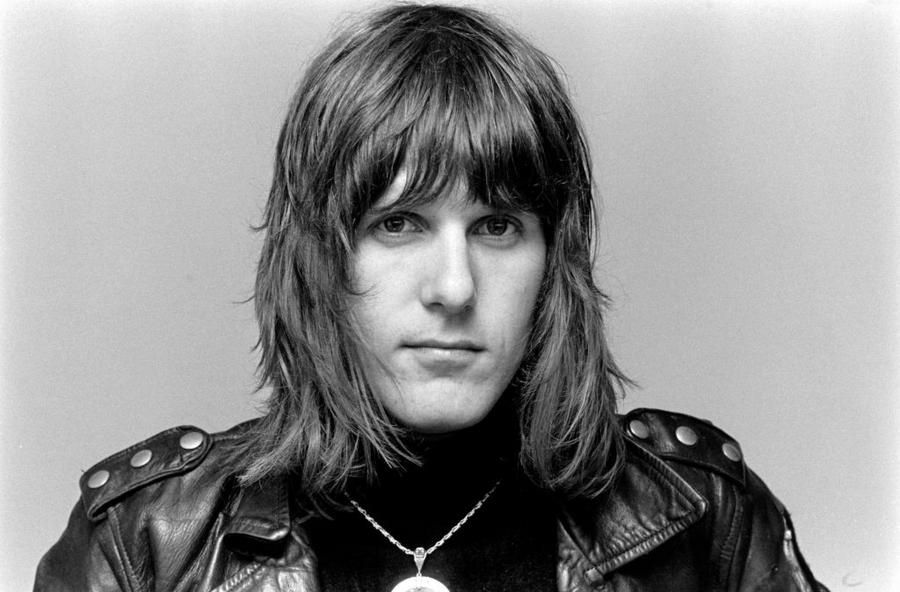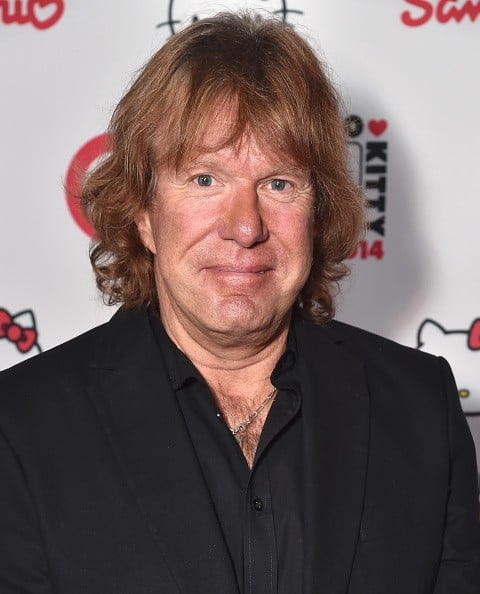What was Keith Emerson's Net Worth?
Keith Emerson was a keyboardist, songwriter, composer, and record producer who had a net worth of $4 million at the time of his death. Keith Emerson rose to fame in the late 1960s as a member of the progressive rock band the Nice. He found his greatest commercial success as a member of Emerson, Lake & Palmer in the 1970s, releasing such hit albums as "Tarkus" and "Works Volume 1." Emerson also had a solo recording career, and composed music for some films.
Early Life and Education
Keith Emerson was born on November 2, 1944 in Todmorden, West Riding of Yorkshire, England to Dorothy and Noel. The family had been evacuated to the north during World War II, and after the war returned south and settled in Goring-by-Sea, West Sussex. Growing up, Emerson attended West Tarring School and learned to play the piano from his father.
Career Beginnings
After leaving school, Emerson worked at Lloyds Bank Registrars, where he played the piano in the bar during lunchtime. Ultimately fired from the bank, he went on to play in a local 20-piece swing band run by Worthing Council. This led to the formation of the Keith Emerson Trio. Following that, Emerson played with such groups as the T-Bones and the V.I.P.'s.
The Nice
Prompted by soul singer P. P. Arnold to create a backing band for her, Emerson helped form the band the Nice in 1967. He was joined by Lee Jackson, David O'List, and Ian Hague. After Hague was replaced with Brian Davison, the Nice found success as a live act. The band's sound was largely centered on Emerson's theatrical use of the Hammond organ and the ways in which he helped rearrange classical music into progressive rock. With the Nice, Emerson recorded the studio albums "The Thoughts of Emerlist Davjack," "Ars Longa Vita Brevis," and "Nice," all in the late 1960s.

(Photo by Jorgen Angel/Redferns)
Emerson, Lake & Palmer
Following the disbanding of the Nice in 1970, Emerson formed a new progressive rock band, Emerson, Lake & Palmer, with bassist Greg Lake and drummer Carl Palmer. The band quickly became popular after performing at the Isle of Wight Festival in 1970. ELP went on to become one of the most commercially successful progressive rock bands of the decade, starting with their eponymous debut album in late 1970. That album was the first of five consecutive ELP albums to be certified gold in both the US and UK, with the subsequent ones being "Tarkus" (1971), "Trilogy" (1972), "Brain Salad Surgery" (1973), and "Works Volume 1" (1977).
After releasing "Works Volume 2" and "Love Beach" in the late 1970s, ELP disbanded. The group reformed partially in the 1980s as Emerson, Lake & Powell, with Cozy Powell in place of Palmer, and released one studio album. Subsequently, Emerson reunited with Palmer to form the group 3 with multi-instrumentalist Robert Berry. That band released one album, "To the Power of Three" (1988), before splitting up. Back together again in 1992, Emerson, Lake & Palmer released the album "Black Moon," their first album in 14 years. They released their ninth and final studio album, "In the Hot Seat," in 1994.
Style and Influence
Emerson was renowned for his wild, theatrical showmanship using a Hammond organ, which he would physically abuse in a myriad of creative ways during live performances. He would hit the organ, beat it with a whip, wedge knives into it, or even ride it across the stage like a horse. These theatrics have been credited with influencing various heavy metal artists. In addition to the Hammond organ, Emerson was known for his use of the Moog synthesizer, becoming the first artist ever to tour with the instrument. He had what was called the "Monster Moog," which was built from several modules and weighed 550 pounds.
Solo Career
Emerson pursued a number of musical projects after ELP first disbanded in 1979. Among them was a solo recording career, with Emerson's first solo album, "Honky," coming out in 1981. He didn't release his second solo album, "The Christmas Album," until 1988. Emerson's solo releases continued to be sporadic after that, with his subsequent albums being "Changing States" (1995) and the all-piano album "Emerson Plays Emerson" (2002). After releasing "Keith Emerson Band featuring Marc Bonilla" in 2008, he toured with his self-named band, and later released "The Three Fates Project" in 2012.

Alberto E. Rodriguez/Getty Images
Other Musical Projects
In the 1980s, Emerson began composing music for films. He scored such films as "Inferno," "Nighthawks," and "Murder Rock." In the 1990s, Emerson toured with the supergroup the Best and formed another supergroup called Aliens of Extraordinary Ability. Later in his life, he worked on various orchestral compositions with other artists, including Japanese composer Takashi Yoshimatsu and Norwegian conductor Terje Mikkelsen. In 2013, Emerson made his conducting debut with Orchestra Kentucky.
Personal Life and Death
Emerson married his Danish girlfriend Elinor Lund in 1969. Together, they had two sons named Aaron and Damon. Due to his infidelity, Emerson got divorced from Lund in 1994. He subsequently had a longterm relationship with Mari Kawaguchi.
Emerson struggled with depression in the 1990s and 00s, partly stemming from a nerve-related condition that made it difficult for him to play music. On March 11, 2016, he died from a self-inflicted gunshot wound to the head at his home in Santa Monica, California. He owned the Santa Monica apartment since 1994 when he bought it for $225,000. His estate sold the apartment in 2018 for $920,000.
/2016/03/keith-emerson-1.jpg)
/2016/11/greg-lake.jpg)
/2016/09/GettyImages-683765732.jpg)
/2019/02/Rod-Argent.jpg)
/2021/09/Stewart-Copeland.jpg)
/2016/09/Rick-Wakeman-1.jpg)
/2020/07/mlp.jpg)
/2010/01/Deryck-Whibley.jpg)
/2020/07/jl.jpg)
/2010/01/GettyImages-183679600.jpg)
/2022/10/Anne-Murray.jpg)
/2014/09/Kim-Delaney.jpg)
/2009/11/Tim-Duncan.jpg)
/2023/01/lance-armstrong.jpg)
/2021/04/Sara-Gilbert.jpg)
/2025/03/Kelli-Ferrell.jpg)
/2010/05/Jaleel-White.jpg)
/2016/03/keith-emerson-1.jpg)
/2016/11/greg-lake.jpg)
/2016/09/GettyImages-683765732.jpg)
/2021/09/Stewart-Copeland.jpg)
/2012/07/Mike-Portnoy.jpg)
/2014/06/GettyImages-492857474.jpg)
/2019/02/Rod-Argent.jpg)
/2024/11/Max-Cavalera.jpg)